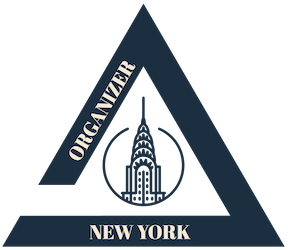Today, the Federal Trade Commission expanded its campaign against pharmaceutical manufacturers’ improper or inaccurate listing of patents in the Food and Drug Administration’s (FDA) Orange Book, disputing junk patent listings for diabetes, weight loss, asthma, and COPD drugs, including Novo Nordisk Inc.’s blockbuster weight-loss drug, Ozempic.
The Commission sent warning letters to 10 companies and notified the FDA that it disputes the accuracy or relevance of more than 300 Orange Book patent listings across 20 different brand name products. These patent listings are currently listed in the FDA’s publication of “Approved Drug Products with Therapeutic Equivalence Evaluations,” commonly known as the Orange Book, which lists drug products approved by the FDA as safe and effective.
To promote competition, the FTC said it is disputing these patent listings as improper or inaccurate. Improper Orange Book patent listings can delay cheaper generic alternatives from entering the market, keeping brand name drug prices artificially high.
“By filing bogus patent listings, pharma companies block competition and inflate the cost of prescription drugs, forcing Americans to pay sky-high prices for medicines they rely on,” said FTC Chair Lina M. Khan. “By challenging junk patent filings, the FTC is fighting these illegal tactics and making sure that Americans can get timely access to innovative and affordable versions of the medicines they need.”
The warning letters were sent to:
- AstraZeneca and Novo Nordisk for obesity and type-2 diabetes injectable drugs
- Boehringer Ingelheim, Covis Pharma, Glaxo-Smith Kline, Novartis Pharmaceuticals Corp., Teva Pharmaceutical Industries Ltd. and some of their subsidiaries for asthma and COPD inhalers
- Amphastar Pharmaceuticals Inc. for a glucagon nasal spray to treat severe hypoglycemia in type-1 diabetics
When the listing of a patent is disputed under FDA regulations, as the FTC has done here, the FDA will send the dispute to the branded drug manufacturer who will then have 30 days to withdraw or amend the listing, or certify under penalty of perjury that the listing complies with applicable statutory and regulatory requirements.
“It is the responsibility of branded drug manufacturers to ensure that Orange Book submissions contain information only on the types of patents for which information should be submitted to FDA,” said FDA Commissioner Robert M. Califf, M.D. “The FDA will continue to engage with the FTC to identify and address potential efforts to impede competition so that consumers can get access to the medicines they need.”
The FTC’s latest patent listing dispute filings come after the Commission challenged over 100 patent listings in November for medications specific to asthma and other inhaler devices, Restasis multidose bottles, and epinephrine autoinjectors. The Commission’s November challenges led to Kaleo Inc., Impax Labs, GlaxoSmithKline, and Glaxo Group delisting patents in response to the FTC’s warning letters. Subsequently, AstraZeneca, Boehringer Ingelheim, and GlaxoSmithKline all announced commitments to cap inhaler out-of-pocket costs at $35.
In September 2023, the FTC issued a policy statement that warned that the agency would be scrutinizing the improper submission of patents for listing in the Orange Book. According to the policy statement, costs associated with challenging improperly listed patents can disincentivize investments in developing generic drugs, which risks delaying or thwarting competitive generic alternatives.
Official news published at https://www.ftc.gov/news-events/news/press-releases/2024/04/ftc-expands-patent-listing-challenges-targeting-more-300-junk-listings-diabetes-weight-loss-asthma
Images courtesy of PixaBay


